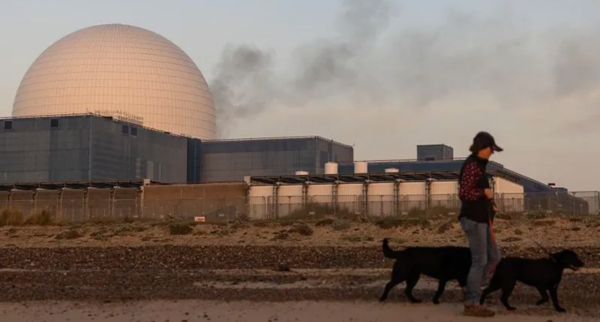UK Called the “Most Expensive Place” to Build Nuclear Power
A new government review says the UK has become the most expensive country in the world for building nuclear power plants. The review, ordered by Prime Minister Sir Keir Starmer, says the nuclear system in the UK has become too slow, too complicated, and full of unnecessary rules.
The report says the government needs a “radical reset” of its nuclear strategy. It argues that if the UK simplifies its rules and decision-making, it could save the country tens of billions of pounds. It also says better planning could stop the UK’s nuclear industry from continuing to decline.
The UK wants to build a new generation of nuclear power stations to meet future energy needs and reach its net-zero carbon goals. But the review found that the current regulatory system is fragmented. This means different parts of the industry follow different rules, and no single body looks after safety across the entire sector. Because of this, companies often make overly cautious and expensive choices, even when the risks are not actually high.
The review also described the industry as “almost monopolistic”, meaning too few companies have too much control. It said both civilian and military nuclear programmes suffer from huge cost overruns and long delays.
Nuclear power plants, which make electricity using heat from atomic reactions, are described as “essential for the UK’s future energy supply.” The report warns that if the UK does not improve its system, it could fall behind other countries that are embracing what the review calls a “global nuclear comeback.”
According to the report, many UK rules are far too risk-averse. For example, the limits on workers’ radiation exposure are stricter than necessary, making operations more expensive without improving safety in a meaningful way.
One major recommendation is to create a single “one-stop” nuclear commission. This new agency would make all key decisions in one place, instead of spreading responsibilities across many organisations.
John Fingleton, who led the taskforce, said, “Our solutions are radical but needed. By simplifying regulation, we can keep or even improve safety standards while finally delivering nuclear power quickly, safely, and at lower cost.”
The government is expected to respond to the report in the upcoming Budget.
Around the world, many large economies are rethinking their nuclear power plans. The number of reactors being planned or proposed is almost the same as the number that already exist today. The UK is one of 30 countries that have promised to triple their nuclear capacity by 2050 to help reduce global carbon emissions.
Today, about 15% of the UK’s electricity comes from nuclear energy. But most of the UK’s nine reactors are old, and eight are expected to close by 2030. New plants are in progress, but they will take years to finish. Hinkley Point C in Somerset should start working in the early 2030s, and Sizewell C is planned to start later in that decade.
The UK also wants to build small modular reactors, which are cheaper and quicker to construct.
Other countries are moving ahead too. France plans at least six new reactors. China has nearly 30 under construction. The US finished its first new reactor in more than 30 years last year, and Japan plans for nuclear power to provide 20% of its electricity by 2040. Meanwhile, Germany has decided to shut down all nuclear plants and invest in renewable energy instead.
Nuclear power remains controversial, especially because of past accidents like Fukushima and Chernobyl. Many people remain worried about safety, even as countries try to balance energy needs with climate goals.
Published: 24th November 2025
For more article like this please follow our social media Twitter, Linkedin & Instagram
Also Read:
How Renewable Energy Is Powering Britain’s Economic Growth
UK businesses adjust to post-Brexit trade, growth pressures
UK refuses funding support for the Mossmorran plant facility























